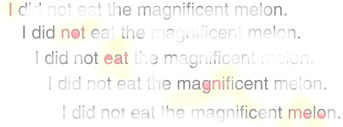

 |
Greg Kochanski |  |
In her column titled "So, maybe I made most of this up, but, hey, does it really matter?", Anjana Ahuja writes "THIS COLUMN could probably benefit occasionally from a dollop of fraud. Not wholesale plagiarism or fabrication, more an artful adjustment of the actualite". She then goes on to report on an article that encourages fraud in science, reporting it almost in glowing terms.
Q Fraud may be good for science, according to Steve Fuller, Professor of Sociology at the University of Warwick. Since most scientific duplicity involves researchers "idealising" results that they probably would have eventually achieved anyway, such fact-finding actually oils the wheels of discovery. He even questions whether it should be labelled fraud at all.Anjana Ahuja and Steve Fuller are dead wrong. A little fabrication may indeed oil the wheels of science, producing more theories, but unfortunately, the resulting theories may be incorrect. The world doesn't need more theories so much as it needs correct theories. A better metaphor is that a little fraud oils the tires of science. It'll proceed straight ahead, no matter where the road goes.
Sociology is a prime example of a field where theorists have had little experimental constraint. They have been free to write what they want and haven't been greatly slowed by oceans of hard facts. (Because their facts are few, and most sociological facts are ultimately opinions anyway.) What have they produced? Not a great deal that will stand the test of time. Why? Because nature isn't always as simple as the researchers who study it. So, someone who "idealises" a result to make it closer to what it "should" be is, probably, unfortunately, often making it worse, rather than better.
It also misleads future researchers. They read such papers and believe them, when in fact, they should be finding better ways to repeat the experiment and do it better. Modern funding agencies are reluctant to pay for a repeat of someone else's research, so once a false result gets into the literature, it can last a long time. Especially if it is nicely idealised so it fits in with people's preconceptions and is easy to remember and to explain, a false explanation can persist for decades.
When you think of fudging an experiment even slightly, just remember that most of what we thought we knew in the pre-scientific past was wrong. Malaria was due to bad air; Zeus threw thunderbolts; flies spontaneously generated; the sun went around the earth. All of those were interesting theories, and it was only careful and honest experiments that proved them false.
For a person who claims to study how science works, Prof. Fuller seems remarkably ignorant about what is important. The core idea of both Science and Engineering is that they tell you things that work. Engineers build airplanes that actually fly. Scientists tell stories that actually match experiments. In neither case do you want the field to give up their intrinsic honesty. Do you want to get into an airplane that just looks like it should fly?
Science without the honesty is just storytelling. And, if Prof. Fuller practises what he preaches, he is just another storyteller. If he, personally, cooks his data, then his stories are no better than the myths of old and probably just about as accurate. I must say that I'm not too impressed by The Times' columnist, Anjana Ahuja, either.
Prof. Fuller has tenure, so the British taxpayer is pretty well committed to paying for him no matter what he does. But, the bigger question is what to do about Sociology. Does it actually contribute much good to society? Certainly, we'd all like to understand how our society works. Certainly, we'd like sociology to be more-or-less correct. Certainly we'd like the stories that sociologists tell to help us predict how the world behaves. But do they?
| [ Papers | kochanski.org | Phonetics Lab | Oxford ] | Last Modified Thu Jul 4 00:04:13 2013 | Greg Kochanski: [ Home ] |